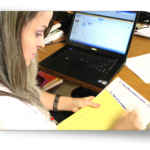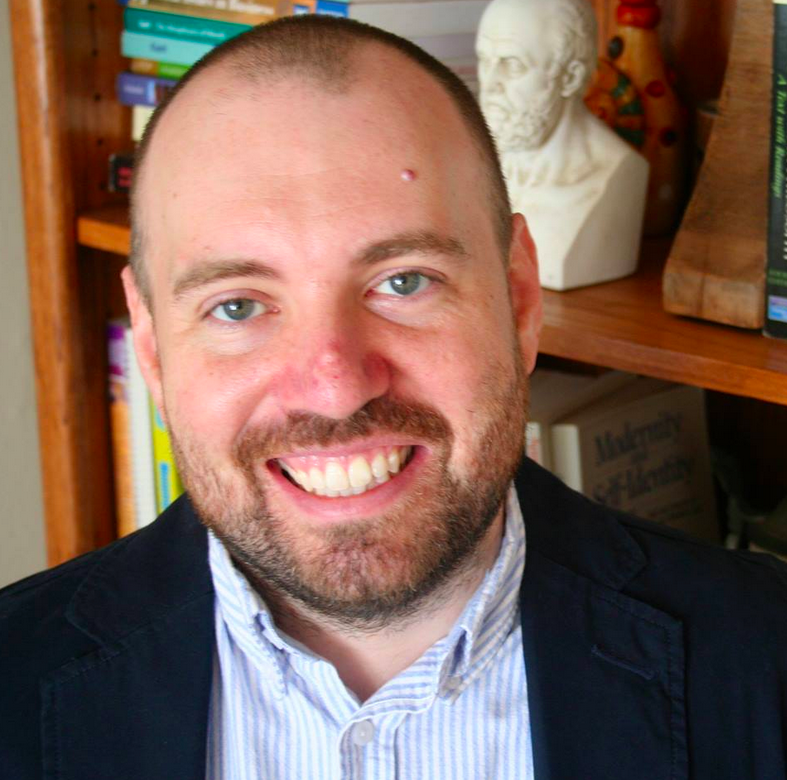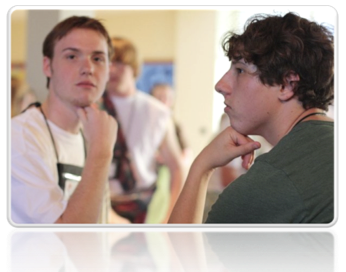Caffeine Night
At The University of Southern Mississippi, I offered extra points to my students if they brought the research papers they were composing for my course to the Writing Center for extra help. After seeing that this improved the papers of the students who chose to attend, I partnered with the staff at the Center and we hosted a Caffeine Night specifically for students in my courses. We offered free coffee and donuts to those who attended, and I was present with several of the Center volunteers during the scheduled time so the students could come in for extra help and advice on their papers. I was able to field all questions about content, while the volunteers could help with questions regarding the mechanics of writing. This proved to be a popular event and the papers of those who chose to attend were much improved!
I plan to work with the library at North Carolina State University to create a similar assignment, and perhaps even extend it to my public speaking course for students working on speeches.
E-Media Fast
An activity I adopted from Neil Postman’s Amusing Ourselves to Death is the electronic media fast, in which I ask students to go 24 hours without using any electronic media. In my philosophy course, I had students complete this assignment after we have discussed epistemology and related theories of knowledge. I also imagine that an activity like this would work well in a communication technology course as a way of opening discussion about the impact of new technology on the way we communicate.
After completing the fast, I require students to complete a reflection paper about the experience, and connect those reflections to some targeted questions related to the course material we covered. I have found that this assignment offers a very practical way for students to see the impact of the ideas we’re discussing in their day-to-day lives.
“It has been a very long time since we have talked as much as we had that day. I spent my day cooking, playing piano, and reading. I was so much more relaxed doing these things. I was still thinking about what I was doing but it was a different type of thinking than what I am used to doing.” – Student comment from e-media fast.
Mock Trial of Socrates
I schedule this assignment after students have read Plato’s Apology. Ten students are divided into teams for prosecution and defense. The remaining students are assigned to the jury. The prosecution, with Meletus, and the defense, with Socrates, get together and plan a out a modern day mock trial of Socrates that follows more closely to the U.S. legal system rather than the Greek. While these groups are preparing, the students who are part of the jury will participate in an inkshedding activity.
When the trial begins, I tell everyone that the jury must come up with a unanimous decision. If this is achieved we will end by having a candy party. If they are not able to come to a unanimous decision, I will declare a mistrial and we will have to do the trial over again.
However, ahead of time I pick out one student who will serve as a mole, and I ask them to refuse to allow the jury to reach a unanimous decision. This leads to a great deal of frustration among the students. Once this frustration reaches a peak, I stop them and tell them what I have done, explaining that the student is serving as an example of Socrates. This allows them to see a more negative side of Socrates, which is often difficult for students to understand.
Inkshedding
“A significant force in the original impetus for using inkshedding in classrooms was the perception that classroom discussions tend to be dominated by a few voices.” – Russ Hunt
 Inkshedding was designed to allow an opportunity a for low-stakes and informal writing environment in the classroom. The instructor begins by posing one or more possible questions for discussion, and then each student individually free-writes about the topic, without worrying about formal writing structures. This free-writing mimics a traditional verbal class discussion in its informal manner, but gives every student the opportunity for input. After a pre-designated amount of time, students switch paper, read the responses of their peer, and then free-write in response to the original. After another interval of time, students trade papers again, this time with a different student than from before. This process can continue as long as the instructor allows. Optionally, students may be instructed to mark responses they particularly like with an asterisk in order to call attention to it.
Inkshedding was designed to allow an opportunity a for low-stakes and informal writing environment in the classroom. The instructor begins by posing one or more possible questions for discussion, and then each student individually free-writes about the topic, without worrying about formal writing structures. This free-writing mimics a traditional verbal class discussion in its informal manner, but gives every student the opportunity for input. After a pre-designated amount of time, students switch paper, read the responses of their peer, and then free-write in response to the original. After another interval of time, students trade papers again, this time with a different student than from before. This process can continue as long as the instructor allows. Optionally, students may be instructed to mark responses they particularly like with an asterisk in order to call attention to it.
After all of the free-writing has been completed, there are two options. First, the instructor could collect the writings and either post them around the room for all to read, or scan them and return copies to all students. Second, the instructor could have students read the most highly asterisked passages as a jumping off point for discussion, in much the same way a pair-and-share activity would help jumpstart a class discussion.

